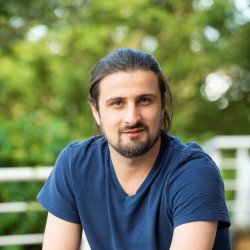
Eyup Kar
Academic and research departments
About
My research project
Framework for Open Hybrid Simulation and Analytics for Modelling Complex Systems in Health and Social CareHybrid simulation (HS) which is a combination of Discrete Event Simulation (DES), System Dynamics (SD), and Agent-Based Simulation (ABS), will be used in order to overcome complex healthcare problems. In the literature, many studies developed HS as problem-specific. HS helps stakeholders understand the simulation process to make decisions based on a clear representation of the problem. Healthcare systems cannot be analysed in a partial manner since all components affect each other, and it is impossible to isolate parts. Most of the hybrid attempts are ad hoc and pragmatic with no clear methodology. Therefore, the aim of the study is to develop a framework for open HS and analytics for modelling complex systems in health and social care
Supervisors
Hybrid simulation (HS) which is a combination of Discrete Event Simulation (DES), System Dynamics (SD), and Agent-Based Simulation (ABS), will be used in order to overcome complex healthcare problems. In the literature, many studies developed HS as problem-specific. HS helps stakeholders understand the simulation process to make decisions based on a clear representation of the problem. Healthcare systems cannot be analysed in a partial manner since all components affect each other, and it is impossible to isolate parts. Most of the hybrid attempts are ad hoc and pragmatic with no clear methodology. Therefore, the aim of the study is to develop a framework for open HS and analytics for modelling complex systems in health and social care
ResearchResearch interests
- Modelling and Simulation
- Hybrid Simulation
- Healthcare
Research interests
- Modelling and Simulation
- Hybrid Simulation
- Healthcare
Teaching
Teaching Assistant Business Process Management (With SAP)
Publications
Highlights
Kar, E., Eldabi, T., and Fakhimi, M. (2022). Hybrid Simulation in Healthcare: A Review of the Literature. In Proceedings of the 2022 Winter Simulation Conference, 1211–1222. https://doi.org/10.1109/WSC57314.2022.10015418
The use of Hybrid Simulation (HS) increased as problems have become more complex and multidimensional, with a particular focus on healthcare systems. Such complexities make it challenging for single simulation models to provide the right support for decision-making. This article reports on a preliminary review of the literature and investigates the prevalence and utilization of HS in healthcare. Thirty-three relevant papers were found in the literature, including application papers, frameworks, and review papers. Our review categorizes the M&S techniques employed and analyses the application type, software packages, trends, opportunities, and challenges of HS in healthcare. Findings show that combining Discrete Event Simulation and System Dynamics is the most common approach to developing HS models in healthcare. However, the popularity of combining Agent-Based Simulation with others is on the rise. Current limitations of the literature and opportunities for future research are discussed.